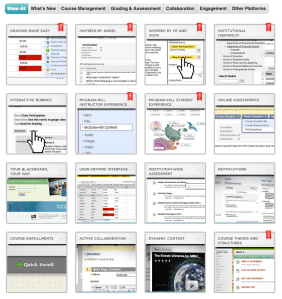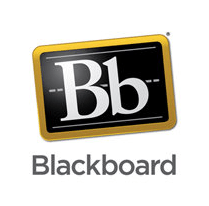This week, in a letter addressed to “The Education Community,” Michael Chasen stepped down as the CEO of edtech software giant, Blackboard. In a way, it’s the end of an era. Whether or not it was an “era to remember” remains to be seen.
Why is this significant? Because of what Blackboard has come to represent — both for good and for ill. On the one hand, the company became one of the biggest success stories in the education space, bringing mainstream consumer and investor attention (and scale) to an industry that previously had little. But that’s only one part of Blackboard’s story.
Chasen co-founded Blackboard with his college buddy Matthew Pittinsky back in 1997. Chasen became the CEO in 1999 and held the position until this week, leading the company through multiple transitions, phases and continued growth — something that, while there are those that prefer founding-CEOs, is hardly the norm. Because it’s not easy, even if your name is Zuckerberg or Larry Page.
Between 1998 and 2001, the founders raised $103 million in venture funding. While those were Bubble Times, it was still unusually high for edtech companies. And when the dotcom bubble burst, Blackboard was doing $40 million in revenue and breaking even. In 2004, the co-founders took the company public, with the sale of its shares raising $70 million, at a time when Gartner was declaring the eLearning market to be unstable.
 The following year Blackboard bought its biggest competitor WebCT for $180 million, gaining 1,400 customers and 274 employees in the process and increasing its share of the higher-ed market to as much as 75 percent. In terms of revenue growth, Blackboard reported revenue of $111.4 million in 2004, which grew to $447.32 million by 2010.
The following year Blackboard bought its biggest competitor WebCT for $180 million, gaining 1,400 customers and 274 employees in the process and increasing its share of the higher-ed market to as much as 75 percent. In terms of revenue growth, Blackboard reported revenue of $111.4 million in 2004, which grew to $447.32 million by 2010.
On July 1, 2011, Blackboard agreed to a $1.64 billion buyout at the hands of a group of investors led by Providence Equity Partners. The exit is one of the largest in the education space to date.
What’s more, from the time Blackboard started in 1997, the use of learning management software in education has increased exponentially, with Blackboard often given credit (in varying degrees) for higher ed’s adoption of software.
Seen in this light, Blackboard almost seems like a wildly successful company, and its role in higher education’s software adoption seems closely linked if not in some way causative. In fact, some would say that the company is partially responsible for helping to accelerate “a transition to active learning at scale.”
But, wait…
Of course, leaving off there would ignore the fact that Blackboard is one of the most disliked — even detested — companies in education. Just look at this Google search or Amplicate’s measurement of the Blackboard hate.
This largely stems from the fact that Blackboard’s scale and reach brought its core learning management product to scores of higher ed institutions. However, between about 2006 and 2011, Blackboard management seemingly turned most of its focus to scale, expanding into new product categories and ramping up its acquisition strategy. By 2008, Blackboard lived (in some capacity) in over 6,000 colleges and universities.
It may not be correct to say that Blackboard’s push beyond learning management system market took its focus completely away from its core LMS platform, but whatever degree of focus remained on Blackboard’s LMS, it wasn’t the right kind. One is not hard-pressed to find more-than-one negative review of Blackboard’s major iterations over the past 5 years.
 Personally, I’ve never met someone who gushed about the Blackboard user experience, which was handicapped by feature creep, while, over the course of your four years at college, the speed, agility and core user experience stayed the same.
Personally, I’ve never met someone who gushed about the Blackboard user experience, which was handicapped by feature creep, while, over the course of your four years at college, the speed, agility and core user experience stayed the same.
And not in a good way. As a result, Blackboard’s competitors grew in size right alongside it, most notably Moodle, even though no one has yet even come close to supplanting it. But you ask any software-related (education) startup which company it wants to “take down” or disrupt, and 9 out of 10 will say Blackboard. Sure, that comes with being a leader, but it also comes when your products suck.
End Of An Era?
Matthew Pittinsky left Blackboard in 2008 to go back to school (he has since co-founded another fast-growing edtech company, called Parchment) and with Chasen’s departure this week, both Blackboard co-founders are gone, with the company left in the hands of its new owners. To replace Chasen, Providence Equity Partners et al have brought on Jay Bhatt, who was most recently the President and CEO of Progress Software and, before that, an executive at Autodesk.
In a blog post following the announcement, President of Blackboard Learn Ray Henderson laid out the upside of Jay Bhatt assuming control, and why it might be good for Blackboard. Of course, as he himself says, there are many challenges ahead for Blackboard — part of the reason Chasen wanted Blackboard to return to being a private company.
 But, really, the mistakes that led him to feel compelled to pursue that course of action were of his — or at least Blackboard’s — own doing. Since 2007/8, Blackboard churned out a bunch of new product platforms and products and spin-offs and acquired a bunch more. While the departure of the co-founders and its escape back to private markets (after its exit) seem to represent the end of an era by themselves, it’s obviously far less dramatic in its finality should the future of Blackboard remain bright.
But, really, the mistakes that led him to feel compelled to pursue that course of action were of his — or at least Blackboard’s — own doing. Since 2007/8, Blackboard churned out a bunch of new product platforms and products and spin-offs and acquired a bunch more. While the departure of the co-founders and its escape back to private markets (after its exit) seem to represent the end of an era by themselves, it’s obviously far less dramatic in its finality should the future of Blackboard remain bright.
Considering the future of education itself is moderately to extremely uncertain in its own right, so it’s hard to say whether or not Bhatt and the new owners will be able to turn Blackboard into the educational Death Star it was once on track to become.
Tough Road Ahead, Love Lost
The apparent strategy behind Blackboard’s acquisitions were to give it an opportunity to become the all-in-one or OS for education. That’s obviously the holy grail for any space, and education is no different. As Joshua Kim so astutely points out, if Blackboard can integrate its stack, then perhaps that moves into the realm of possibility.
However, given the fact that Blackboard’s Mobile platform remains divorced from its core LMS platform and there’s an inconsistency in design and user experience particularly with these two, but, really, across products, it’s kind of hard to imagine that integrated stack going smoothly. What’s more, Blackboard’s platform is inflexible out of date and built to prioritize consistency of upgrades rather than modularity.
Blackboard would need to go the Google route, as one can see from the consistency in using Search, YouTube, Gmail, GDocs, etc. Blackboard has not yet become a web service, and as such, isn’t really tapping into the cloud in any significant way, meaning it’s still operating on crappier margins. Granted that transition will be painful, but as Josh might agree, I don’t think they have a choice if they want to matter in 5 years.
Whether or not the penultimate chapter is written yet for Blackboard, it’s definitely the end of an era. My perspective may be somewhat dated (or distorted) but it’s hard to imagine that, even if Blackboard were able to build the foundation for that eLearning ecosystem, it would be able to reverse the stigma (or Web 1.0 associations) now squarely associated with it, thanks to its much-maligned, core product: Blackboard Learn.
What do you think?
Michael Chasen’s resignation blog post included below:
Dear Blackboard Clients, Partners and Staff:
Fifteen years ago, my close friend Matt Pittinsky and I, not long out of college, started a company with the idea that technology could transform education. We had big ideas and lots of youthful ambition. Those dreams and that ambition grew into Blackboard – a company that today supports tens of thousands of clients around the world helping them bring teaching and learning online.
It’s been an amazing experience. I am extremely proud of the work we’ve done to date, and I’m excited about the bright future of Blackboard. After starting out as a pioneer in e-learning, we’ve expanded the company’s vision for supporting clients. We now offer a range of products and services to support education needs at all levels: from commercial to open source and from K-12 to higher education and beyond. And we will continue to make big investments in the next generation of solutions for education.
Today Blackboard is in a clear leadership position and will continue to grow and help clients in new ways for many years to come. While it has been a great privilege to lead the company for so long, the Board of Directors and I have decided that now is the right time to bring on a new CEO to help the company take the next steps to carry this vision forward.
I’m pleased to share that Jay Bhatt will join in December as Blackboard’s next President and CEO. Jay is currently President and CEO at Progress Software Corporation, a publicly traded global software company that simplifies the development, deployment and management of business applications on-premise or on any Cloud. He was previously at Autodesk, Inc. for almost 12 years, and ran Autodesk’s largest vertical business while helping that company grow to over $2 billion in revenue. Jay has an impressive background with extensive experience in the software industry. Additionally, Jay has a passion for education, which makes him a great fit for Blackboard and aligns him with the company’s mission to continue to improve and extend education globally.
In the next couple of months, I’ll be working closely with Jay, Ray Henderson, and the rest of our senior executive team to ensure a smooth transition. There will be no interruption to the work we’re doing on many fronts to support you. As you know, Blackboard has an exceptional team that is dedicated to meeting your needs.
I’d like to thank all the members of the Blackboard community – especially the clients, partners and staff that I’ve had the chance to work with over the years. We’ve done a lot to support education globally, and I’m looking forward to seeing that work continue and strengthen over time.
Please don’t hesitate to reach out with any questions at michael@blackboard.com.
Sincerely,
Michael L. Chasen
